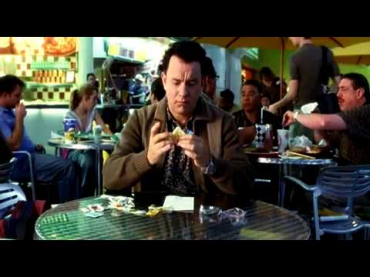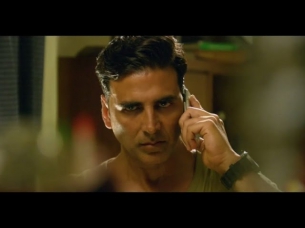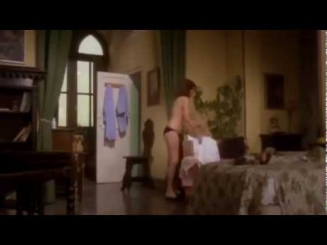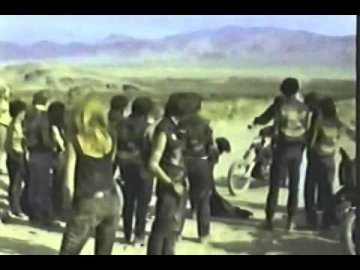Victor Hugo - Les Misérables 1958 Full Movie
Victor Hugo - Les Misérables 1958 Full Movie - смотрите и не говорите потом что мы вам это не показали. Victor Hugo :
MORE ABOUT : Les Misérables 1958 film From Wikipedia, the free encyclopedia Les Misérables is a 1958 French-East German-Italian film adaptation of the Victor Hugo novel released in France on March 12, 1958. Written by Michel Audiard and René Barjavel, the film was directed by Jean-Paul Le Chanois. It stars Jean Gabin as Jean Valjean.
Adaptation
The bishop's background is briefly sketched rather than detailed as in the novel. Javert is a young boy, the son of a guard in the Toulon prison, when he sees Valjean as a convict. Sister Simplice admits Valjean and Cosette to the convent instead of Father Fauchevent. Thénardier, in disguise, meets Marius and proves to him with the help of newspaper clippings that he is completely mistaken about Valjean's criminal past.
Cast
Jean Gabin as Jean Valjean/Champmathieu
Bernard Blier as Javert father and son
Danièle Delorme as Fantine
Bourvil as Thénardier
Elfriede Florin as La Thénardier
Giani Esposito as Marius Pontmercy
Béatrice Altariba as Cosette
Martine Havet as young Cosette
Silvia Monfort as Éponine
Mireille Daix as young Éponine
Jimmy Urbain as Gavroche
Serge Reggiani as Enjolras
Fernand Ledoux as Monseigneur Myriel
Isabelle Lobbé as Azelma
Jean d'Yd as Mabeuf
Jean Murat as Colonel Georges Pontmercy
Lucien Baroux as Monsieur Gillenormand
Suzanne Nivette as Mademoiselle Gillenormand
Jacques Harden as Courfeyrac
Marc Eyraud as Grantaire
Werner Dissel as Brevet
Beyert as Bahorel
Hans-Ulrich Laufer as Combeferre
Gérard Darrieu as Feuilly
Pierre Tabard as Prouvaire
Henri Guégan as Laigle
Julienne Paroli as Madame Magloire
Laure Paillette as Toussaint
Madeleine Barbulée as Soeur Simplice
Christian Fourcade as Petit Gervais
Bernard Musson as Bamatabois
René Fleur as The cardinal
Ardisson as A gendarme
Jean Ozenne as The prefect of Montreuil
Bernard Musson as A bourgeois
Gerhard Bienert as The president of the court
Harry Hindemith as Un bagnard
Production
Called "the most memorable film version", it was filmed in East Germany and was overtly political. Of the many film adaptations of the novel, this has been called "the one most popular with audiences in postwar France". One noteworthy plot change was made to accommodate the fact that the actors playing the roles of Valjean and Javert were far apart in age, rather than near contemporaries as in the novel. Instead of Javert recognizing Valjean as a convict he had often guarded years earlier, he remembers how, when he was just a boy, his prison guard father had pointed out this man as "the worst kind of prisoner, who tried to escape four times".
Release
The New York Times described it as one of the first French "blockbusters" that appeared in response to such lengthy feature films as Around the World in 80 Days and The Ten Commandments. It said it was "a ponderous four-hour retelling of Victor Hugo's oft-filmed epic.... Not a page is skipped... Too literary, it has the saving grace of Jean Gabin's truly heroic depiction of Jean Valjean plus some stirring scenes on the barricades." It was a "quintessential Gabin role ... that of a loner, an outsider, usually a member of the lower orders who may flirt with love and happiness but knows they are not for him".
The film did not premiere in New York until July 1989, when it ran to coincide with the celebration of the bicentennial of the French Revolution.
From Wikipedia, the free encyclopedia
Victor Hugo : MORE ABOUT : Les Misérables (1958 film) From Wikipedia, the free encyclopedia Les Misérables is a 1958 French-East German-Italian film adaptation of the Victor Hugo novel released in France on March 12, 1958. Written by Michel Audiard and René Barjavel, the film was directed by Jean-Paul Le Chanois. It stars Jean Gabin as Jean Valjean. Adaptation The bishop's background is briefly sketched rather than detailed as in the novel. Javert is a young boy, the son of a guard in the Toulon prison, when he sees Valjean as a convict. Sister Simplice admits Valjean and Cosette to the convent instead of Father Fauchevent. Thénardier, in disguise, meets Marius and proves to him with the help of newspaper clippings that he is completely mistaken about Valjean's criminal past. Cast Jean Gabin as Jean Valjean/Champmathieu Bernard Blier as Javert (father and son) Danièle Delorme as Fantine Bourvil as Thénardier Elfriede Florin as La Thénardier Giani Esposito as Marius Pontmercy Béatrice Altariba as Cosette Martine Havet as young Cosette Silvia Monfort as Éponine Mireille Daix as young Éponine Jimmy Urbain as Gavroche Serge Reggiani as Enjolras Fernand Ledoux as Monseigneur Myriel Isabelle Lobbé as Azelma Jean d'Yd as Mabeuf Jean Murat as Colonel Georges Pontmercy Lucien Baroux as Monsieur Gillenormand Suzanne Nivette as Mademoiselle Gillenormand Jacques Harden as Courfeyrac Marc Eyraud as Grantaire Werner Dissel as Brevet Beyert as Bahorel Hans-Ulrich Laufer as Combeferre Gérard Darrieu as Feuilly Pierre Tabard as Prouvaire Henri Guégan as Laigle Julienne Paroli as Madame Magloire Laure Paillette as Toussaint Madeleine Barbulée as Soeur Simplice Christian Fourcade as Petit Gervais Bernard Musson as Bamatabois René Fleur as The cardinal Ardisson as A gendarme Jean Ozenne as The prefect of Montreuil Bernard Musson as A bourgeois Gerhard Bienert as The president of the court Harry Hindemith as Un bagnard Production Called "the most memorable film version", it was filmed in East Germany and was overtly political. Of the many film adaptations of the novel, this has been called "the one most popular with audiences in postwar France". One noteworthy plot change was made to accommodate the fact that the actors playing the roles of Valjean and Javert were far apart in age, rather than near contemporaries as in the novel. Instead of Javert recognizing Valjean as a convict he had often guarded years earlier, he remembers how, when he was just a boy, his prison guard father had pointed out this man as "the worst kind of prisoner, who tried to escape four times". Release The New York Times described it as one of the first French "blockbusters" that appeared in response to such lengthy feature films as Around the World in 80 Days and The Ten Commandments. It said it was "a ponderous four-hour retelling of Victor Hugo's oft-filmed epic.... Not a page is skipped... Too literary, it has the saving grace of Jean Gabin's truly heroic depiction of Jean Valjean plus some stirring scenes on the barricades." It was a "quintessential Gabin role ... that of a loner, an outsider, usually a member of the lower orders who may flirt with love and happiness but knows they are not for him". The film did not premiere in New York until July 1989, when it ran to coincide with the celebration of the bicentennial of the French Revolution. From Wikipedia, the free encyclopedia










